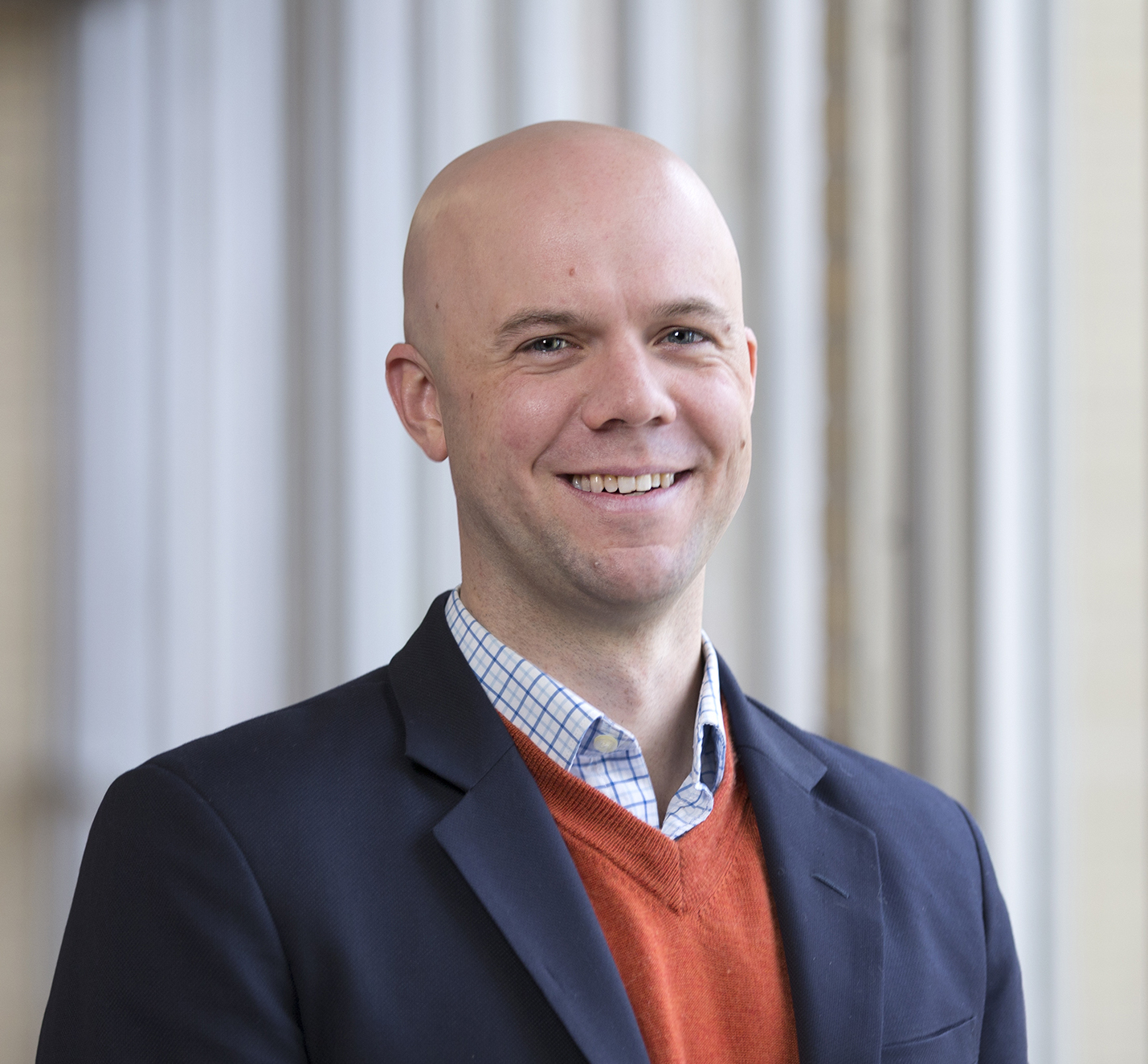POLS 389: International Law and Organization
M/W 11:00 - 12:15 | DuSable 176 | Dr. Ches Thurber
Instructor

Dr. Ches Thurber
414 Zulauf Hall
cthurber@niu.edu
Office Hours: M/W 9:00 - 10:30 am
Schedule an appointment
Teaching Assistants

Ali Ahmad
Ph.D. Candidate
aahmad5@niu.edu

Ijeoma Ezeora
Ph.D. Candidate
iezeora@niu.edu
What is this course about?
Is international law a joke? If there are no police, no jail, and no consistent means of enforcement, is it really law at all? And what about international institutions? Do they really have an impact on the world, or are they just, as one American politician put it, “debating societies”? These questions will be a the heart of this course. In the big picture, we will evaluate how effective the effort to build a system of international laws and organizations has been in promoting global cooperation. In the process, we will examine the main principles of international law as well as some of the most prominent international institutions. Issues of war, peace, and human rights will receive special attention in the second half of the course. The class includes a series of simulations of the International Court of Justice and the UN Security Council.
What will you learn in this course?
In this class, you will become familiar with major debates in international relations about the effectiveness of international law and institutions. You will also become familiar with several key legal concepts and how they have been applied to historical cases. You will also develop insights into the “behind the scenes” work of professional international lawyers, diplomats, and foreign aid workers.
I am not a lawyer, and this is not a formal law course like you would take in law school. We will learn legal concepts, cases, and precedents, and even practice some legal writing and argumentation through simulations. But, in the liberal arts tradition, I am interested not just in the specific legal knowledge you acquire, but the skills you develop that you will use in your professional careers (law or otherwise) and as engaged public citizens. There will a strong emphasis on building logical arguments, and backing up those arguments with evidence– a skill that is central to careers in law, business, and public policy.
How will the class run?
This will be an in-person class with required attendance. In addition to weekly readings, you will complete a weekly reading quiz.
How can you contact me?
Please feel free to email me or the course teaching assistant at any time. We will try to respond within about 24 hours during the week. I will be holding office hours on Mondays and Wednesdays between 9:00 and 10:30. I strongly encourage you to take advantage of this! Sign up for an appointment at this link.
What Materials Do You Need?
The required textbooks for the course are:
Leslie Johns, Politics and International Law Making, Breaking, and Upholding Global Rules. Cambridge University Press, 2022.
Available at bookstore for $53.
Used and new copies available on Amazon here.
Available on reserve at library,
Immediately needed for class.
David L. Bosco. Five to Rule Them All: The UN Security Council and the Making of the Modern World. Oxford University Press, 2009.
Available at the bookstore.
Used and new copies available on Amazon here. $8-$22
Copy available on reserve at the library for 2-hour in-library use.
First used in class November 6th.
Kenneth Cain, Heidi Postlewaite, and Andrew Thomson. Emergency Sex and Other Desperate Measures: True Stories from a War Zone. Ebury, 2006.
Not available at bookstore!
Used and new copies available on Amazon here. $3-$22
Can be requested via inter-library loan for 2-3 weeks (?).
First used in class Nov. 27th.
Evaluation
Class attendance, preparation and participation: (15%): The time we spend in class is for me the most important of this course. As such, punctual attendance is mandatory. But more important than just being present at a desk is that you are actively engaged. I expect that you have done the readings and that you try to participate in discussion each and every class section. You may miss up to 2 classes during the course of the semester without penalty. Beyond that, I ask that you write a brief 1-page summary of the readings assigned for the missed day as make-up work to receive attendance credit. Make-up reading summaries are due by the beginning of the next class.
Reading Quizzes (10%): Each week, by the start of Wednesday’s class, you will have an online reading quiz to complete. It will be a 5-question multiple-choice quiz. You may attempt the quiz twice.
Midterm Exam: (25%): There will a midterm held in the seventh week of class. I will provide a list of possible exam questions one week before the exam. I encourage you to work with others to plan your answers in advance, but your work on exam day must be your own, produced without the assistance of books or notes.
*ICJ Case Simulation: Written (20%) and Oral Participation (5%): In October, we will run a series of mock cases before the International Court of Justice. Each student will be assigned the role of an advocate of a party to the dispute or to that of a justice of the court. Each student will independently write a memorial or a decision of approximately 4 pages (single-spaced) in length. Students will also be evaluated on their oral advocacy in the simulation. Students will have the opportunity to participate either in a simulation that involves a “live” oral arguments session, or one in which they may upload their oral arguments by video at a time of their choosing.
Book Discussion Reflection Posts (10%): Over the course of Weeks 15 and 15, students are expected to contribute FOUR posts to a Blackboard discussion board about the book we are reading those weeks. Posts should be about 80 words in length and engage substantively with the question posed or classmates’ responses.
UNSC Simulation: Participation (5%) and Strategy Memo (10%): In the last week of the semester and during the exam period, we will run a UN Security Council simulations. You will write an 800-word strategy memo prior to the simulation and participate actively in the simulation. Students participating in the NIU Model UN team can count this in lieu of the UNSC simulation and write their reflection memo on their Model UN experience.
Honors Section
Students in the University Honors Program have the option to take this course for honors credit by enrolling in the honors mini-section POLS 389H. Students enrolled in the honors mini-section are required to meet all requirements for the full class as stated in this syllabus and the evaluation breakdown will be identical. However, Honors-enrolled students will be asked to complete more extended and involved assignments related to the two simulation activities. Additional meeting times will be arranged to provide extra instruction and preparation for those assignments.
Model UN Option
I encourage you to consider participating in NIU’s Model UN club, for which I am the advisor. We meet one day a week during the semester, and then travel to Chicago on the weekend before Thanksgiving (Nov. 22-25) for a conference. This year, we will be representing Argentina. There is also an opportunity to serve as a “Justice” of the ICJ in a series of mock trial type simulations. Students who choose to participate in Model UN may choose to count the Model UN experience in lieu of the class National Security Council simulation.
What should you do if you are falling behind?
While it is extremely important that you stick to the weekly schedule of this class, I recognize that stuff happens. The most important thing is that you communicate with me about your needs. I respect your privacy and will never ask you for personal details of your situation.
If you think you need to delay submitting a written assignment, please talk to me in advance, if possible, and I will try to be accommodating. Any missed exam or written assignment submitted after the deadline without prior authorization will incur a penalty. If you do miss an assignment, still reach out and we will come up with a plan for getting you back on track. There will be a late penalty, but it will be far better than failing to turn in an assignment altogether.
Letter Grade Distribution
| Percentage | Letter Grade |
|---|---|
| > 93.00 | A |
| 90.00 - 92.99 | A- |
| 87.00-89.99 | B+ |
| 83.00 - 86.99 | B |
| 80.00 - 82.99 | B- |
| 77.00-79.99 | C+ |
| 70.00 - 76.99 | C |
| 60.00 - 69.99 | D |
| < 60.00 | F |
Course Policies
Committed to your success: Beyond all else, I am committed to the success of every student in this class. I encourage everyone in the class to reach out to me if there is anything I can do in terms of the delivery of the course that would help you be more successful. I might not always be able to make it happen, but I will never discourage you from asking.
Names and Pronouns: I ask that my undergraduate students refer to me as either Dr. or Professor Thurber. I’m just old-school that way. If you have deep ideological opposition to the hierarchy of academic titles, I will also respond to “Comrade Thurber.” I usually use the he/him/his pronouns to refer to myself, but am equally comfortable being referred to with they/them/their. Please let me know how you prefer to be addressed, both in name and pronoun, especially if it differs from what is in the college directory. I will make every effort to address you in the way you wish to be addressed. Please try and do the same for your fellow classmates, as well as for other faculty in the department.
Americans with Disabilities Act and Non-Discrimination Statement: If you need an accommodation for this class, please contact the Disability Resource Center as soon as possible. The DRC coordinates accommodations for students with disabilities. It is located on the 4th floor of the Health Services Building, and can be reached at 815-753-1303 or drc@niu.edu. Also, please contact me privately as soon as possible so we can discuss your accommodations. Please note that you will not be required to disclose your disability, only your accommodations. The sooner you let me know your needs, the sooner I can assist you in achieving your learning goals in this course.
Mental Health and Well-being: I understand that college students may experience a range of academic, social, and personal stressors, which can be overwhelming. You are not alone. Well-being at NIU offers resources, programs, and services. If you or someone you know need assistance with comprehensive or crisis mental health support, Counseling and Consultation Services (CCS) at 815-753-1206 is ready to help 24 hours a day, 7 days a week. Additionally, the National Suicide Prevention Lifeline can be reached at 988.
Academic Integrity: Good academic work must be based on honesty. The attempt of any student to present as his or her own work that which he or she has not produced is regarded by the faculty and administration as a serious offense. Students are considered to have cheated if they copy the work of another during an examination or turn in a paper or an assignment written, in whole or in part, by someone else. Students are guilty of plagiarism, intentional or not, if they copy material from books, magazines, or other sources without identifying and acknowledging those sources or if they paraphrase ideas from such sources without acknowledging them. Students guilty of, or assisting others in, either cheating or plagiarism on an assignment, quiz, or examination may receive a grade of F for the course involved and may be suspended or dismissed from the university.
This is an issue I take seriously. Unfortunately, it has increasingly become an issue in my courses. The creation of one’s own original work is the core of what a university education is all about. Falsely claiming credit for words or ideas that are not your own undermines that core. I will use software that tracks plagiarism as well as for similarities with classmates’ or even your own prior work. When work looks suspicious, I will often use additional measures to identify the original sources of plagiarized text. In this course, academic dishonesty will always result in an F on the assignment and a formal misconduct report filed with the university. The recommendation I make in that report (e.g. failure from the course, suspension, expulsion from the university) will depend on the circumstances.
Artificial Intelligence: Generative artificial intelligence (AI) is almost certainly going to become an essential tool in the workplace and society. Used well and in combination with strong critical thinking and writing skills, it may be able to help you be a better student and professional. The challenge then becomes learning how to use it well and how to develop those critical thinking and writing skills in an AI world.
For each assignment in this course, I will make clear whether and to what degree AI tools may be used. Violation of these rules will be considered academic dishonesty. If I suspect the use of AI in an assignment, I will invite the student to my office for a discussion about the substance of the assignment and the process used in completing it. A final grade will be assigned on the basis of both the written work and that discussion.
Class Schedule
Students are expected to read the listed readings before the indicated class session.
| Topic: | Posted | Assignments |
|---|---|---|
| Week 1: Introduction | Aug. 25 Aug. 27 |
Simulation |
| Week 2: Law, Institutions, and IR Theory | Sept. 1 Sept. 3 |
Labor Day
|
| Week 3: Foundations of International Law | Sept. 8 - Sept. 10 |
|
| Week 4: Law of the Sea | Sept. 15 - Sept. 17 |
|
| Week 5: International Economic Relations | Sept. 22 - Sept. 24 |
|
| Week 6: War and Peace | Sept. 29 - Oct. 1 |
|
| Week 7: Human Rights | Oct. 6 - Oct. 8 |
|
| Week 8: Midterm Week | Oct. 13 Oct. 15 |
|
| Week 9: The Environment | Oct. 20 - Oct. 22 |
|
| Week 10: ICJ Mock Cases | Oct. 27 Oct. 29 |
|
| Week 11: ICJ Mock Cases | Nov. 3 Nov. 5 |
|
| Week 12: The UN Security Council | Nov. 10 - Nov. 12 |
|
| Week 13: UNSC II | Nov. 17 - Nov. 19 |
|
| Week 14: Aid and Intervention | Nov. 24 Thanksgiving! |
OPTIONAL CLASS: “Living Room Conversation”
|
| Week 15: Aid and Intervention II | Dec 1. - Dec. 3 |
|
| Finals Week | Dec. 10 10:00-11:50AM |
|